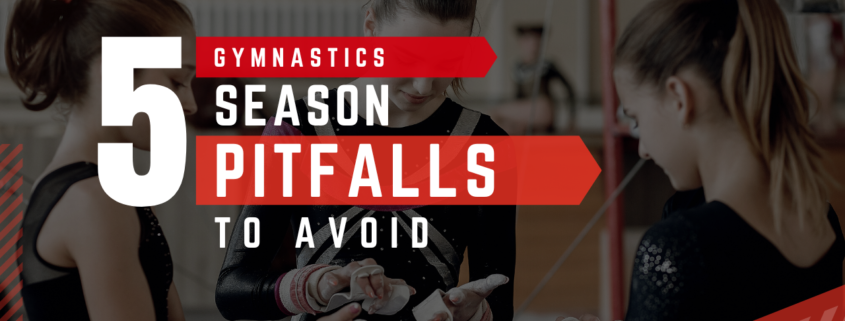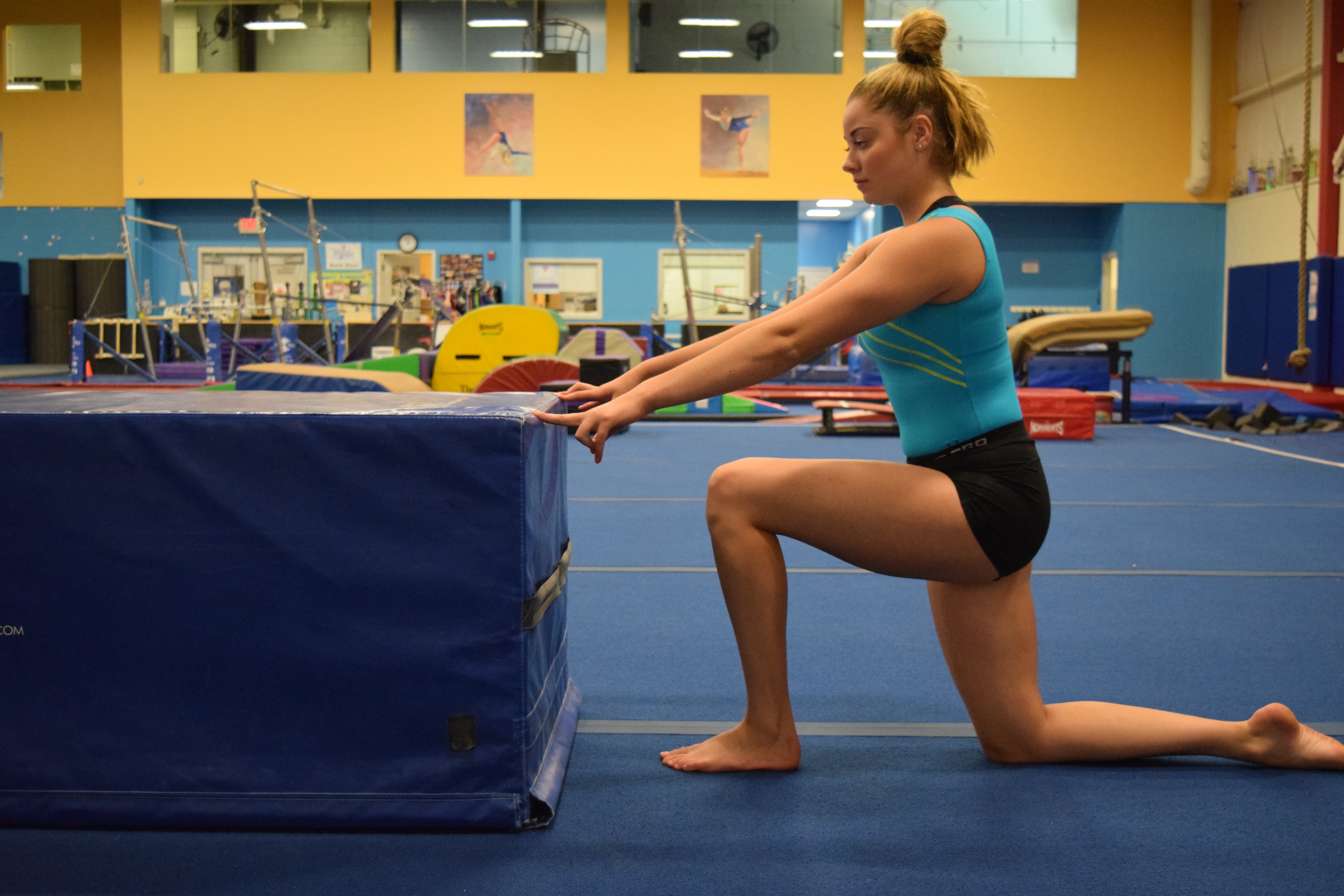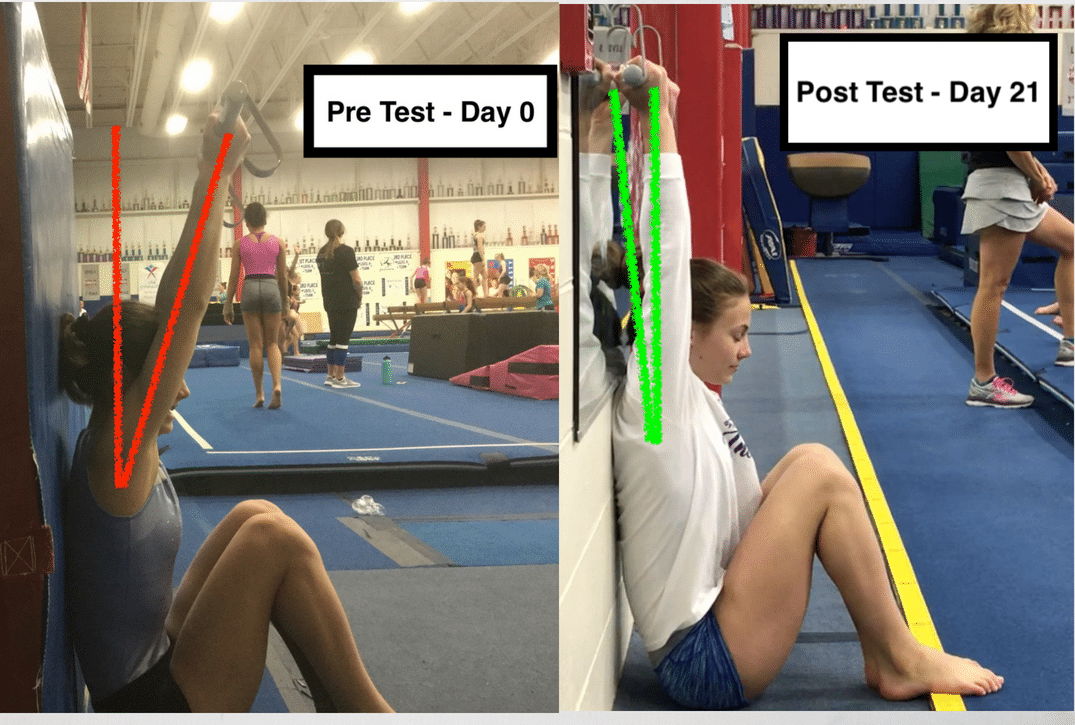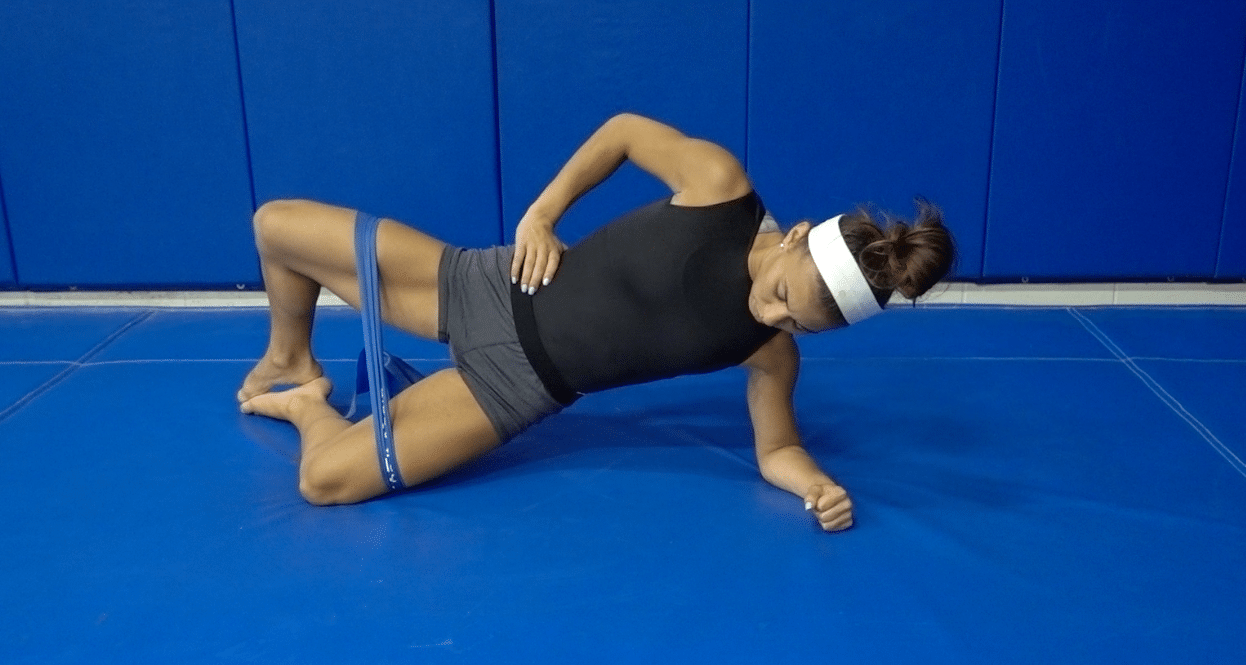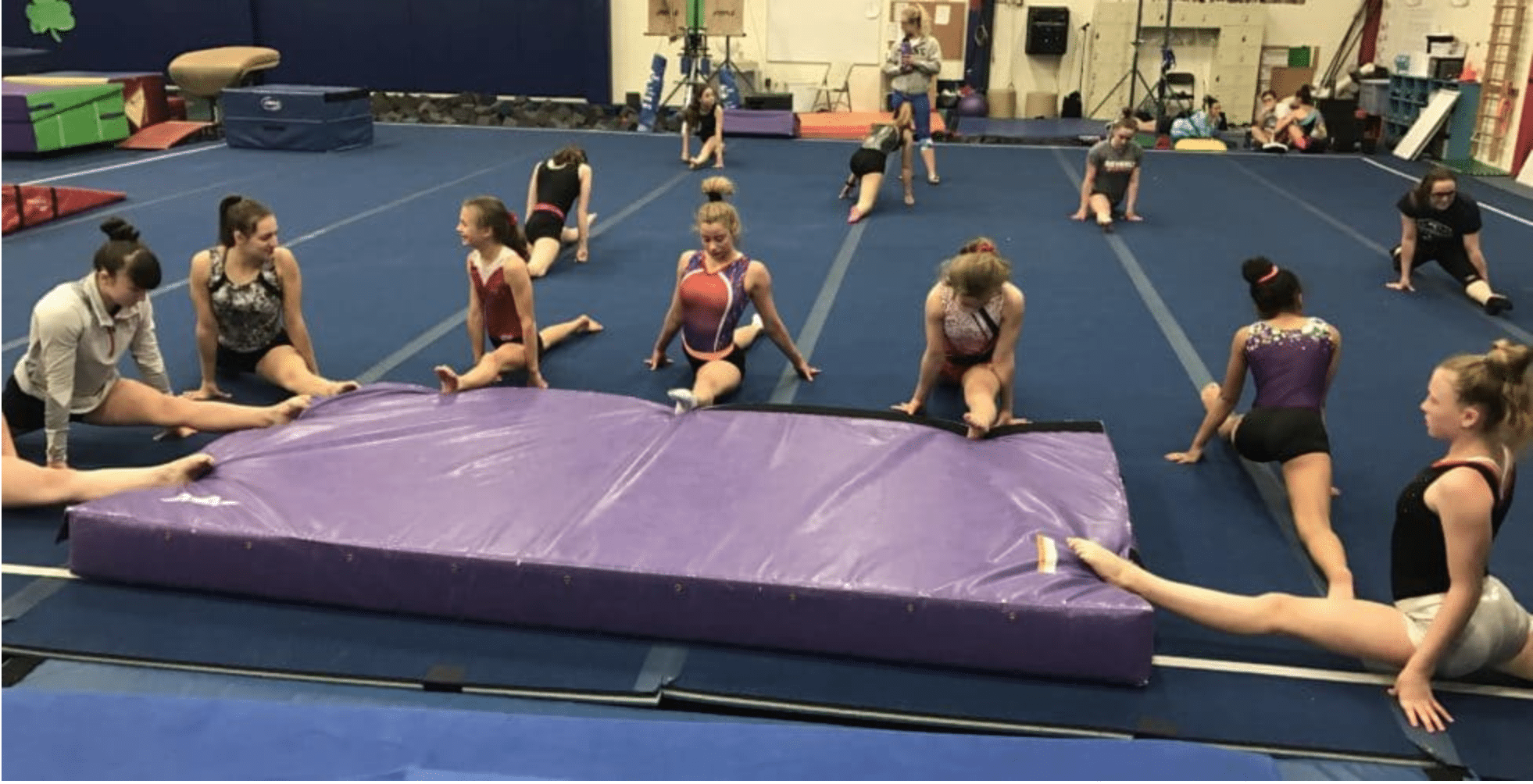5 In Season Pitfalls for Gymnastics Coaches to Avoid
We are in the thick of competitive gymnastics season here in America, and around this time I get a ton of questions about what coaches, parents, and gymnasts can do to maximize their routine/meet performance.
This week I wanted to share a quick blog post on the most helpful information I’ve learned in the last years of consulting with high level gymnastics teams.
Before we dig in if you are a gymnastics coach wanting to get the exact drills, skills, and techniques expert coaches use on bars be sure to check out the live 2023 SHIFT Symposium, SHIFTs flagship 3-day virtual gymnastics education event
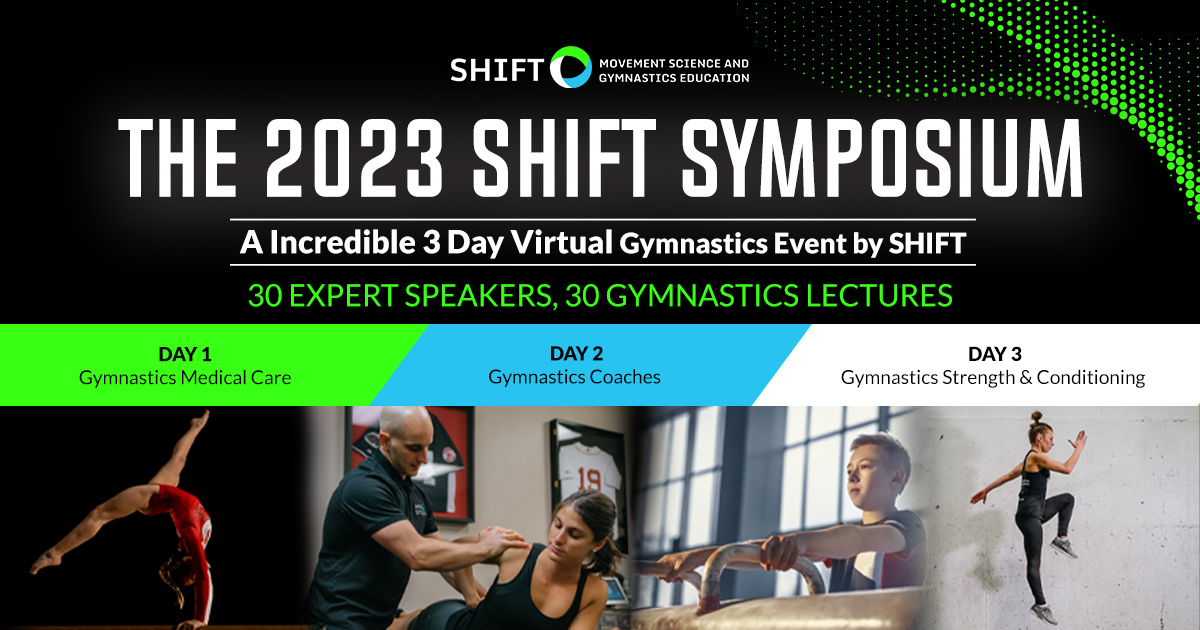
We have an epic 30-speaker lineup with 3 full days, and on Day 2 you will get 9 hours of live lectures on uneven bar, beam, vault, floor, pommel horse, mental blocks, culture, motivation, and MUCH more. Check it all out HERE,
https://shiftmovementscience.com/2023shiftsymposium/
Table of Contents
5. Maximize Outside Gym Recovery with Education
Many coaches and gymnasts know that the key to success is hustling in the gym on skills, routines, and physical prep. But what many people don’t realize is that maximizing our recovery outside the gym is just as important for having the best competition seasons and meet performances possible.
One of the most important aspects of recovery for gymnasts is getting consistent, high-quality sleep. Sleep plays a crucial role in physical and mental recovery and without it, gymnasts cannot perform at their best. Some of the best ways to get higher-quality sleep are
- Aim for a consistent sleep/wake time, even on weekends
- Try to see morning sunlight within an hour of waking up, as well as the sunset
- Avoid blue light screens and phones within 1 hour of sleeping
- Avoid caffeine within 10-12 hours of bedtime
- Try to sleep in darker, cooler room (about 68 degrees F)
Trying to get more sleep naturally leads to the comment “But our gymnasts have practice till 8 or 9, a long drive, and then have to eat, shower, and do their homework. This is where time management comes in. Proper time management is a crucial aspect of maximizing recovery for gymnasts in season. The best thing gymnasts can learn is to create a schedule and to-do list and try very hard to maximize all the moments of weekly time for homework. Also, getting into a habit of asking for assignments in advance to start prior to the weeks they are due is massively helpful.
Finally, fueling for performance and constantly aiming to stay hydrated is a must. Meal-prepping healthy snacks during the weekend prior to competition is one great ensure that gymnasts are properly fueled for training and competition. Eating healthy snacks during the day will help gymnasts maintain energy levels and stay focused throughout the day, and avoid crashing at practice. Along with sleep timing, consistent eating and knowing what foods fuel gymnasts well helps them to have a routine when meeting time comes on the weekend.
4. Don’t Neglect Basics & Shaping In Season
I’m the first to tell you that I love watching meets and gymnasts crush routines after months of work and practice. There is no doubt that we need to do a lot of routines during the week and as the season continues in order to really be physically and mentally prepared. But, that doesn’t mean we can neglect all the basics and shaping fundamentals that got gymnasts to where they are.
I really encourage people to make time every day for basics, shaping, and fundamental elements. Something as simple as adding uppers and lowers to warm-ups as seen here.
3. Keep up Power and Flexibility Work
Another important thing for coaches to focus on is ensuring that their gymnasts maintain high levels of power, flexibility, and prehab work throughout the season. While we definitely need to reduce the volume of strength and conditioning to sometimes taper gymnasts and put their energy into routines/meets, we can’t completely take away strength and power work.
To maintain power, coaches should incorporate exercises like broad jumps, seated dumbbell jumps, and explosive sprints into their gymnast’s training routine. These exercises help to maintain top threshold muscular output by keeping activity in large threshold motor units and keeping the nervous system primed. This can help gymnasts to perform at a higher level and maintain their strength throughout the season.
2. Double Down on PreHab
Gymnastics season is demanding on the body. It can be a long 3-4 months of routines. To help reduce the risk of injuries, coaches should make sure that gymnasts are doing prehab exercises for the hips, shoulders, ankles, and lower back at least 2 times per week. A combination of soft tissue care from above, as well as direct strength work and strength balance, is a must. This can help to protect against common injuries and keep gymnasts as healthy as possible throughout the season.
1. Mimic The Exact Meet Situation As Close As Possible
An error I used to make, and see many other coaches make, is not REALLY trying to mimic the settings of a meet. By that I mean, when doing routines in practice they don’t strictly follow the time allotted for warm-ups. Or they don’t rotate to an event and have the gymnasts sit for 5 minutes like happens all the time at meets. Even down to having a gymnast stand for 2 extra minutes before their routine to mimic a judging scoring error or meeting.
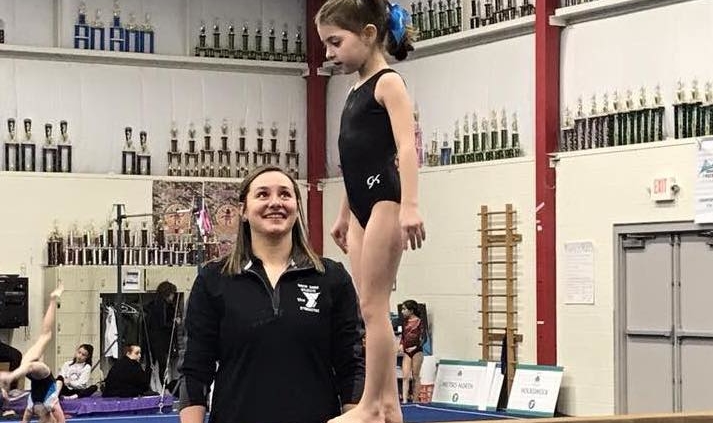
While I know time is an issue at practice, I would highly encourage once per week to do a true mock meet. This just means you come in like you were at a meet, use one strip of the floor to warm up, then have your timed event warm-ups, rotations, and transitions like you would if today was a meet. All the way down to the cheering and loud floor music when you are on beam. These things all really matter as the year goes on, and the competitions get bigger/more stressful.
Bonus – It’s Just Gymnastics
Listen I love gymnastics, I want gymnasts to do well, and I understand people are competitive and have goals. But just remember, gymnastics is a voluntary activity we all get the privilege to do. Sometimes despite all the prep, work, and planning, it just doesn’t workout. And that’s okay 🙂
Concluding Thoughts
So! I hope those tips help. I wanted to keep this on the shorter side just so it wasn’t a massive long read for people, and they could skim quickly for what might help.
Again in if you are a gymnastics coach, medical provider, or strength coach be sure to check out the live 2023 SHIFT Symposium, SHIFTs flagship 3-day virtual gymnastics education event

We have an epic speaker lineup with 3 full days, and on Day 2 you will get 9 hours of live lectures on uneven bar, beam, vault, floor, pommel horse, mental blocks, culture, motivation, and MUCH more. Check it all out HERE,
https://shiftmovementscience.com/2023shiftsymposium/
Best of luck with the competitive season!
– Dave
CEO/Founder of SHIFT

